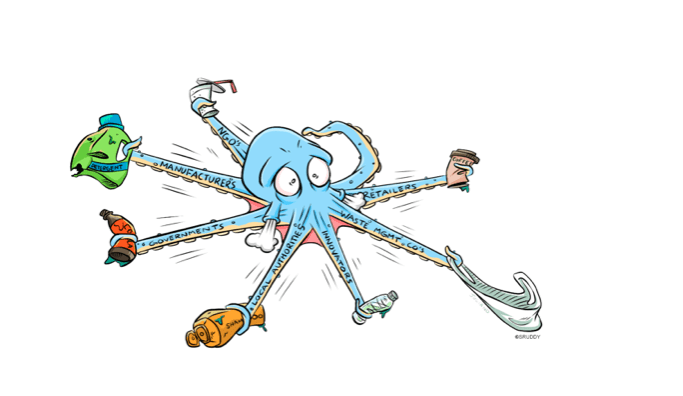Each week Business & Finance highlights an up-and-coming start-up, making waves in its industry. This week Simon Ruddy from Diluteze tells us how he hopes to tackle the single-use plastic problem.
What is it?
Diluteze is a social enterprise that has developed a unique approach to tackling the scourge of single-use plastic packaging. Consumers are fully aware of the impact of the increasing volumes of single-use plastic packaging they generate, but often feel helpless in terms of making a meaningful contribution to tackling this crises.
Diluteze has developed the CUSP Initiative (Cease Using Single-use Plastic). Launching March 2020, under the MarchAgainstSingleUse hashtag, the CUSP Initiative distils-down the challenge into smaller, bite-sized tasks that amplify the real contribution individuals and communities can make in tackling this global scourge, by measuring and collating their achievements.
At the beginning of March 2020, participants spend 10 minutes inputting their current monthly usage (in units) into CUSP’s online calculator or mobile app, across a range of 30 of the more common items of single-use plastic packaging found in Irish homes.
Weights and corresponding CO2 emissions from each item of plastic are preloaded and automatically totalled, providing participants with their current monthly impact.
At the end of March users simply input their reduced usage over that month. CUSP platforms calculate the difference (reduction), providing individuals and communities with real numbers, in terms of their contribution to battling this global scourge.
Who’s behind it?

Simon Ruddy.
The CUSP initiative was developed by Diluteze founder, Simon Ruddy. He says,
Following a decade working as a Business Development Manager, where I dealt with many customers and partners who were working to reduce their environmental impact, I identified a real need for a more broadly based approach to tackling single-use plastic packaging. My experience and research brought me to the conclusion that consumers are concerned about the issue of single-use plastic packaging, but are not fully engaged in terms of finding solutions or methods to reduce their personal impact.”
Simon worked with Rachel O’Steen and Vladamir Golubenko on the design and development of the CUSP Initiative. Complex formulae were required to ensure users have very little to do in terms of calculating their impact, especially for calculating the CO2 emissions linked to individual items of plastic. “Vladamir built the platform in such a way that users only input ‘number of units’ – CUSP platforms do the rest, converting unit figures into both kilograms of single-use plastic and CO2 reduced,” added Ruddy.
How is it funded?
To-date, Diluteze has been funded through a mixture of founder resources initially (€30k), followed by Enterprise Ireland Competitive Start Fund (CSF) investment of €50k. “CSF Investment has enabled Diluteze develop-out its business model, technology and go-to-market strategy,” said Ruddy.
Diluteze commenced a seed round late 2019 with a view to raising €370k to launch the CUSP Initiative, with the objective of taking its online calculation tools to Ireland and UK participants initially.
Ruddy added, “Beyond our seed round we will look to raise a further €1.8m in 2022 to fund expansion of the CUSP Initiative beyond EU markets and to launch an ambitious educational initiative that aims to catch our newest citizens, before they become consumers, but especially, before bad habits develop. This initiative will be marketed with the help of our campaign mascot, Cusp the Octopus (below), who, despite current efforts to tackle single-use plastic, still struggles every day with the volumes of single-use plastic discarded in the oceans where he lives.”

Future plans?
Diluteze’s primary objective is to enable policy makers, local authorities, businesses and communities align their sustainability objectives and goals with UNEA and EU targets for reducing both single-use plastic packaging and CO2 emissions. It is estimated that CO2 emissions from petrochemical based plastic production will account for 30% of global CO2 emissions by 2030.
“Both the United Nations Environmental Assembly (UNEA) and the EU have set as a goal the elimination all non-essential single-use plastic packaging by 2030. This equates to 70% of current global consumption – 105 million tonnes annually,” said Ruddy.





